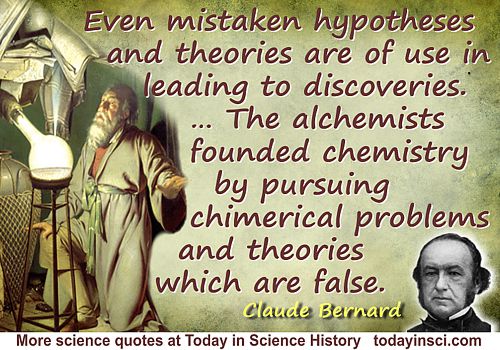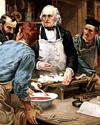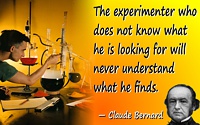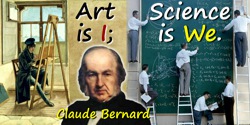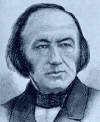 (source)
(source)
|
Claude Bernard
(12 Jul 1813 - 10 Feb 1878)
French physiologist who helped establish the principles of experimentation in the life sciences. His Introduction to the Study of Experimental Medicine (1865) is a scientific classic.
|
Claude Bernard - Context of quote
“The alchemists founded chemistry”
Illustrated Quote - Medium (500 x 350 px)
“Even mistaken hypotheses and theories are of use in leading to discoveries. … The alchemists founded chemistry by pursuing chimerical problems and theories which are false. ”
— Claude Bernard
In An Introduction to the Study of Experimental Medicine
More Claude Bernard quotes on science >>
In his scientific classic, An Introduction to the Study of Experimental Medicine, the great French physiologist, Claude Bernard presents the basic principles of scientific research. This quote comes from the summary at the end of a chapter of “Examples of Experimental Physiological Investigation” in Part Three, “Applications of the Experimental Method to the Study of Vital Phenomena.”
“Even mistaken hypotheses and theories are of use in leading to discoveries. This remark is true in all the sciences. The alchemists founded chemistry by pursuing chimerical problems and theories which are false. In physical science, which is more advanced than biology, we might still cite men of science who make great discoveries by relying on false theories. It seems, indeed, a necessary weakness of our mind to be able to reach truth only across a multitude of errors and obstacles.”
Bernard then admonishes that physiologists
“should conclude that in the present state of biological science accepted ideas and theories embody only limited and risky truths which are destined to perish. They should consequently have very little confidence in the ultimate value of theories, but should still make use of them as intellectual tools necessary to the evolution of science and suitable for the discovery of new facts.”
He also asserted that experimentation must be rigorously designed and criticized to produce unquestionable observations, thus getting rid of the errors of fact which are the sources of error in theory.
Quotes from An Introduction to the Study of Experimental Medicine (1865, translation 1927, 1957), 170. (source)
See also:
- Science Quotes by Claude Bernard.
- 12 Jul - short biography, births, deaths and events on date of Bernard's birth.
- Claude Bernard - context of quote “The alchemists founded chemistry” - Large image (800 x 600 px)
- Claude Bernard - context of quote The experimenter - Medium image (500 x 350 px)
- Claude Bernard - context of quote The experimenter - Large image (800 x 600 px)
- Claude Bernard - context of quote Make experiments to … control our ideas - Medium image (500 x 350 px)
- Claude Bernard - context of quote Make experiments to … control our ideas - Large image (800 x 600 px)
